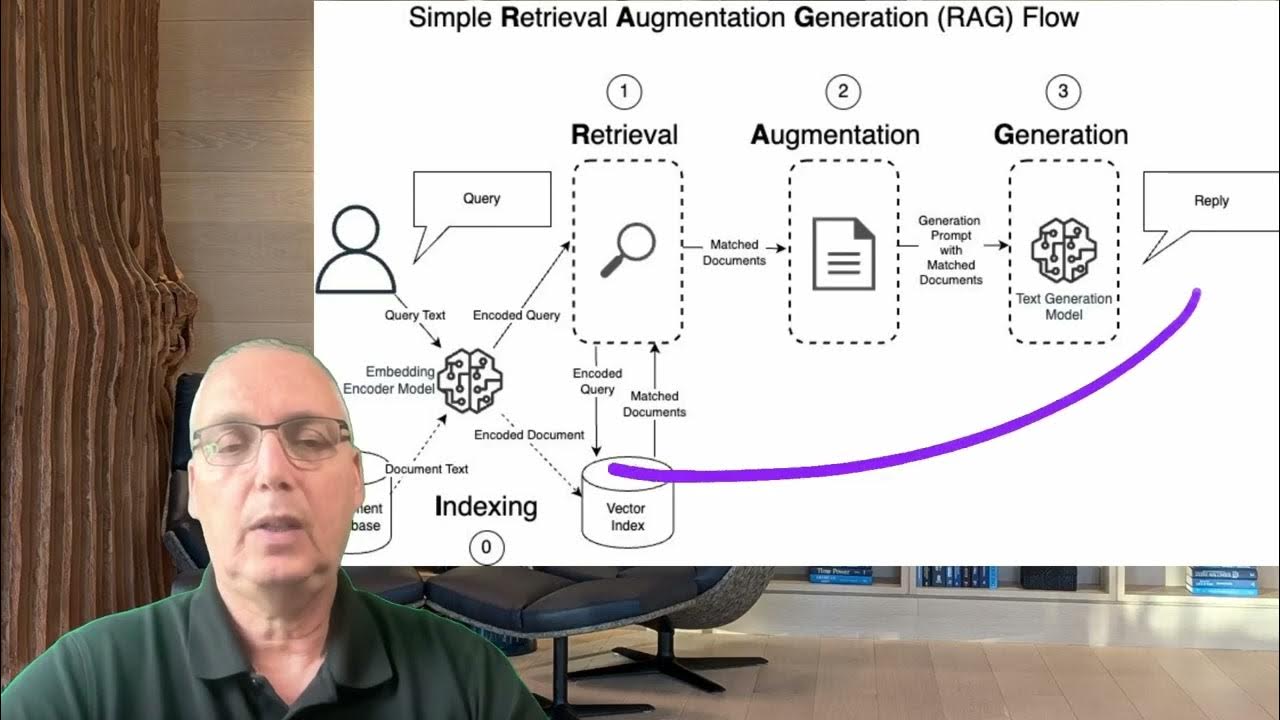The Future of Knowledge Assistants: Jerry Liu
Summary
TLDRIn this engaging presentation, Jerry, co-founder and CEO of Llama Indux, discusses the future of knowledge assistance, emphasizing the evolution from simple retrieval-augmented generation (RAG) systems to advanced knowledge assistants. He highlights the importance of data quality, advanced parsing, and the development of multi-agent frameworks that enhance task-solving capabilities. By integrating agents as microservices, Llama Indux aims to create production-grade knowledge assistants that efficiently manage complex queries and facilitate seamless interaction among various data services. The presentation concludes with an invitation for community feedback and collaboration on these innovative technologies.
Takeaways
- 🚀 Takeaway 1: Llama Indux is focused on advancing knowledge assistance through innovative use of large language models (LLMs).
- 🔍 Takeaway 2: Current enterprise applications of LLMs include document processing, knowledge search, and question answering.
- 💬 Takeaway 3: There is a growing interest in building conversational agents that maintain conversation history and provide comprehensive assistance.
- ⚙️ Takeaway 4: Basic retrieval-augmented generation (RAG) systems are insufficient for complex queries due to their stateless nature.
- 📊 Takeaway 5: High-quality data processing (parsing, chunking, indexing) is crucial for improving LLM performance and reducing errors.
- 🧩 Takeaway 6: Advanced single agent flows enhance query understanding and tool usage beyond a single LLM prompt call.
- 🤖 Takeaway 7: Multi-agent systems can specialize in specific tasks, allowing for more efficient and accurate problem-solving.
- 🛠️ Takeaway 8: Llama Agents represents a framework where agents function as microservices, facilitating better orchestration and scalability.
- 🌐 Takeaway 9: Community feedback is encouraged to refine multi-agent frameworks and improve data quality processes.
- 📈 Takeaway 10: The future of knowledge assistance relies on sophisticated multi-agent systems that enhance information retrieval and processing capabilities.
Q & A
What is computational thinking?
-Computational thinking is a problem-solving process that involves breaking down complex problems into manageable parts, using logical reasoning, and applying systematic methods to develop solutions.
Why is computational thinking considered important in education?
-Computational thinking is essential in education as it equips students with skills needed for problem-solving in various fields, enhances critical thinking, and prepares them for a technology-driven future.
What are the key components of computational thinking?
-The key components of computational thinking include decomposition, pattern recognition, abstraction, and algorithm design.
How does decomposition contribute to problem-solving?
-Decomposition helps by breaking a complex problem into smaller, more manageable parts, making it easier to understand and tackle each section individually.
Can you explain the concept of abstraction in computational thinking?
-Abstraction involves simplifying a problem by focusing on the most relevant aspects while ignoring unnecessary details, allowing for a clearer understanding and more effective solution development.
What role does pattern recognition play in computational thinking?
-Pattern recognition involves identifying similarities or trends in data, which can lead to insights and the development of efficient solutions based on previously encountered scenarios.
What is the significance of algorithm design in computational thinking?
-Algorithm design is significant as it involves creating step-by-step procedures for solving problems, which can be implemented in programming or other systematic approaches.
How can teachers incorporate computational thinking in their classrooms?
-Teachers can incorporate computational thinking by integrating problem-based learning, encouraging collaborative projects, and using technology to create coding or data analysis tasks.
What are some real-world applications of computational thinking?
-Real-world applications of computational thinking include fields like computer science, engineering, data science, and any area that requires analytical problem-solving skills.
How can students practice computational thinking outside of school?
-Students can practice computational thinking outside of school by engaging in coding activities, participating in robotics clubs, solving puzzles, or working on DIY projects that require systematic problem-solving.
Outlines

This section is available to paid users only. Please upgrade to access this part.
Upgrade NowMindmap

This section is available to paid users only. Please upgrade to access this part.
Upgrade NowKeywords

This section is available to paid users only. Please upgrade to access this part.
Upgrade NowHighlights

This section is available to paid users only. Please upgrade to access this part.
Upgrade NowTranscripts

This section is available to paid users only. Please upgrade to access this part.
Upgrade NowBrowse More Related Video

Advanced RAG: Auto-Retrieval (with LlamaCloud)

Mastering LLM Advanced RAG Course Introduction

RAG vs. CAG: Solving Knowledge Gaps in AI Models

KAG Framework SMASHES GraphRAG in Accurate Knowledge Generation

The Rise and Fall of the Vector DB category: Jo Kristian Bergum (ex-Chief Scientist, Vespa)

KAG Graph + Multimodal RAG + LLM Agents = Powerful AI Reasoning
5.0 / 5 (0 votes)